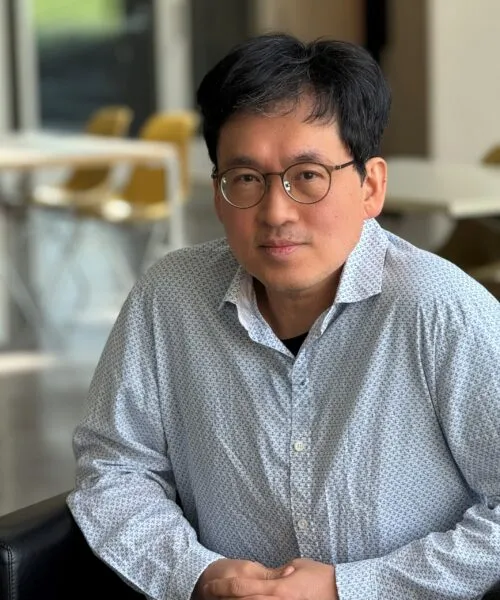About Dr. Yi
About Dr. Yi
Dr. Yun Kyu Yi is an Associate Professor at the University of Illinois at Urbana-Champaign, where he teaches and researches in environmental architecture and sustainable technologies. His expertise includes computational building modeling, building performance evaluation, and studying indoor occupant behavior. Dr. Yi is also the co-founder of the Responsive Architecture Lab (RAL), which focuses on developing new technologies to improve the built environment by integrating architectural design with advanced engineering and computer science.
He earned his Ph.D. and master’s degrees in architecture from the University of Pennsylvania and holds earlier degrees in Architectural Engineering from Yonsei University and Hong-Ik University in South Korea. Before joining UIUC, he taught at the University of Pennsylvania and worked at its T.C. Chan Center for Building Simulation and Energy Studies.
Dr. Yi has authored over 40 peer-reviewed journal articles, with research spanning sustainable design, simulation, and emerging technologies in architecture. His work has been widely recognized, including a feature as the cover article in the Building Simulation journal. Recently, he has led high-impact research applying machine learning to building performance evaluation, energy-generating pavilion design, and climate-responsive architecture. He continues to direct the Responsive Architecture Lab, supported by faculty awards and external grants, advancing innovation at the intersection of design, computation, and sustainability.
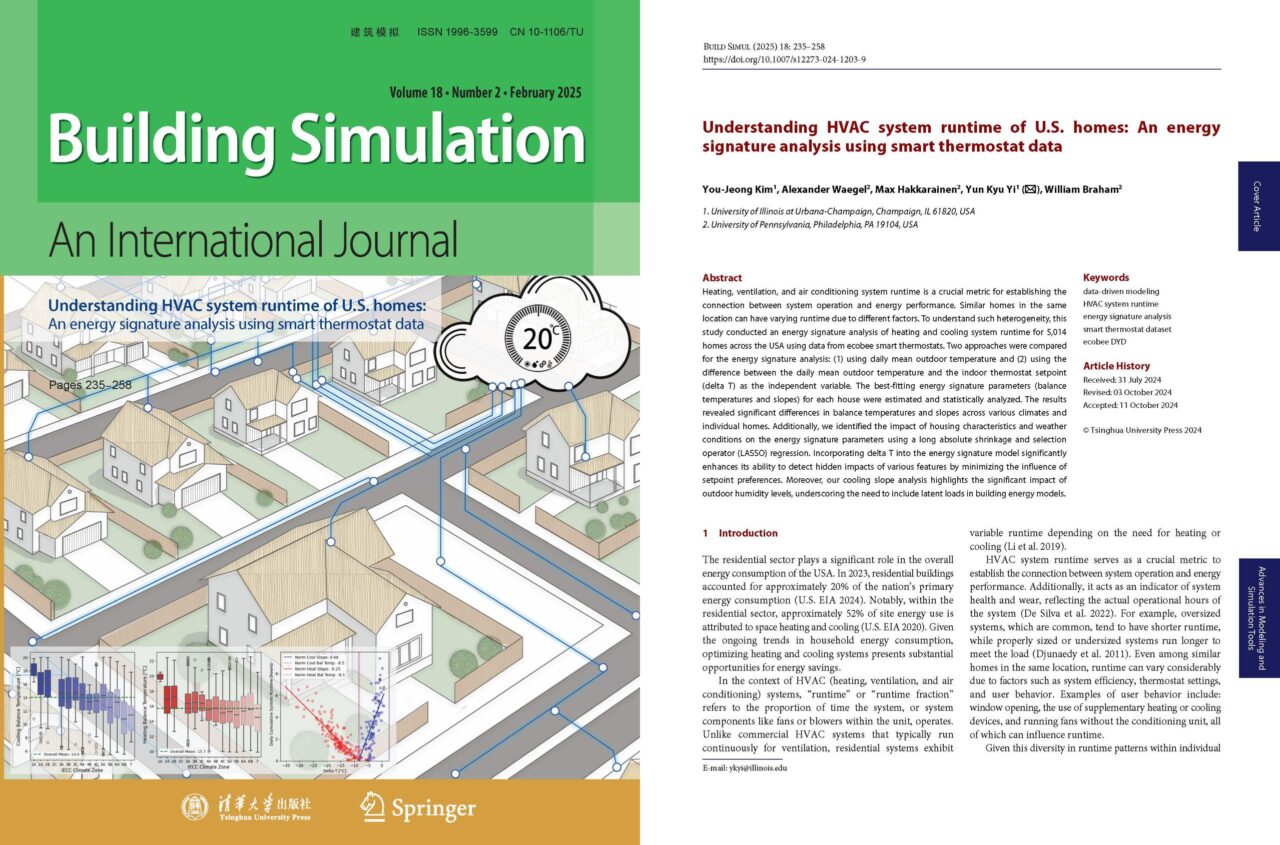
Cover article of Building Simulation Journal, “Understanding HVAC system runtime of U.S. homes: An energy signature analysis using smart thermostat data”, Build. Simul. (2024). https://doi.org/10.1007/s12273-024-1203-9
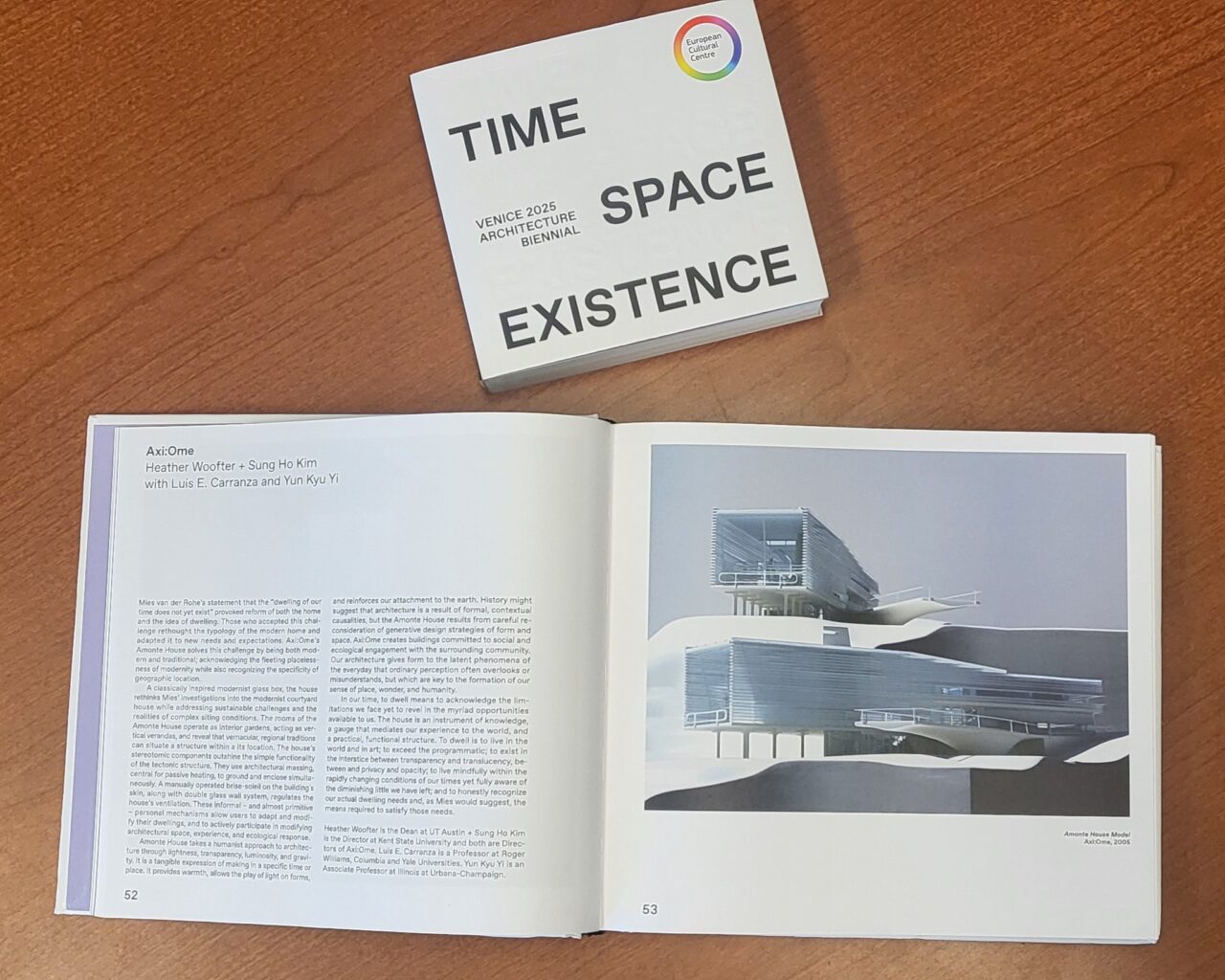
Invited exhibition at “TIME SPACE EXISTENCE” organized by the European Cultural Centre in Venice, from May10th until November 23rd, 2025, in Venice, Italy.
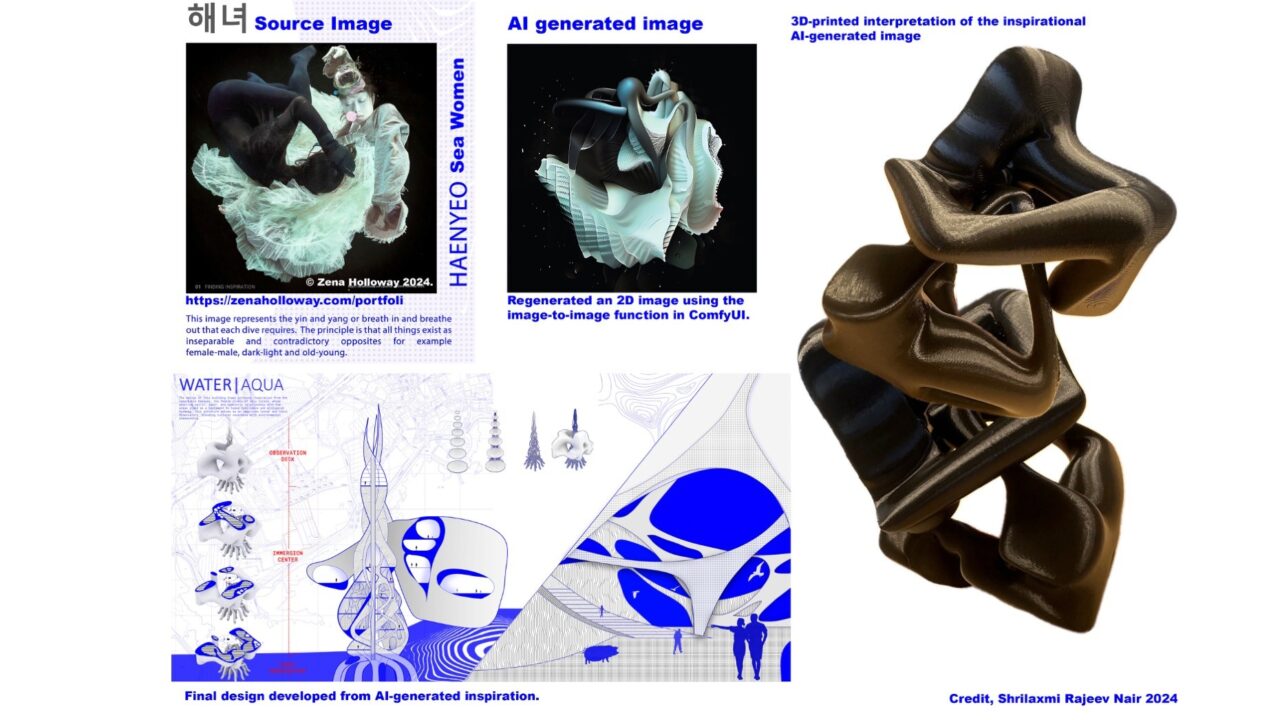
AI Studio, student work by Shrilaxmi Rajeev Nair 2024.
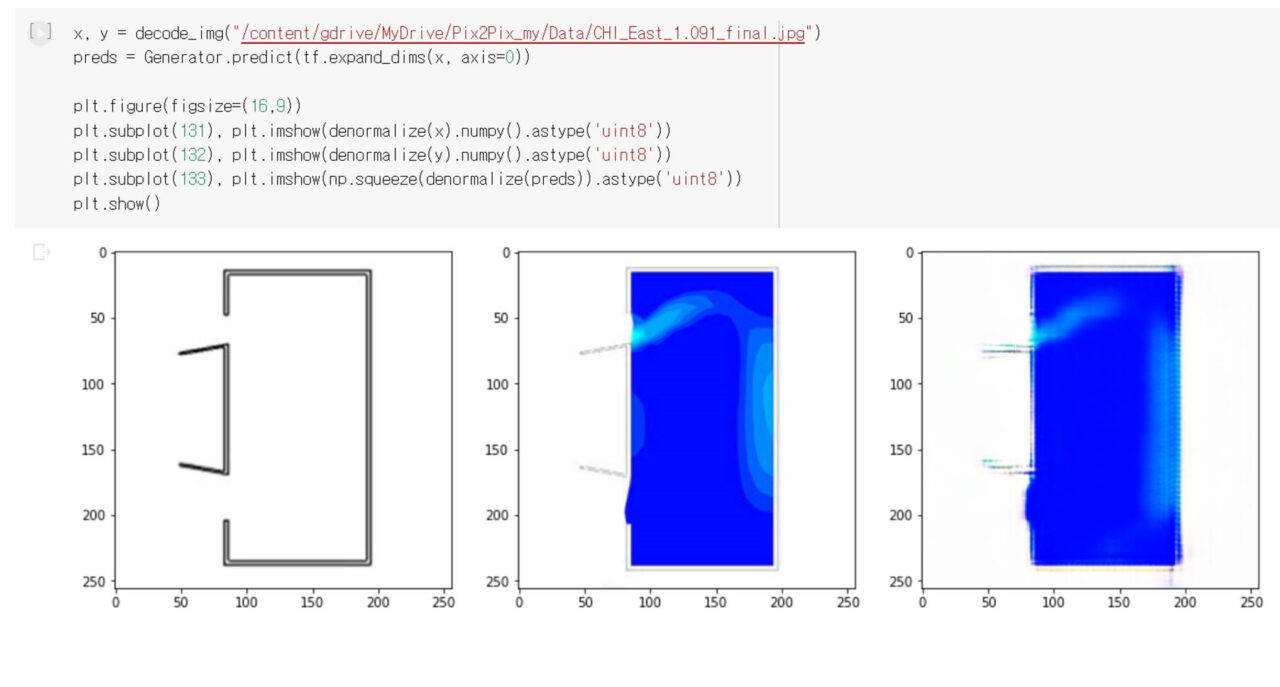
Using a GANs model to predict indoor air flow (Left: Input geometry; Center: Ground truth (CFD); Right: GANs prediction)
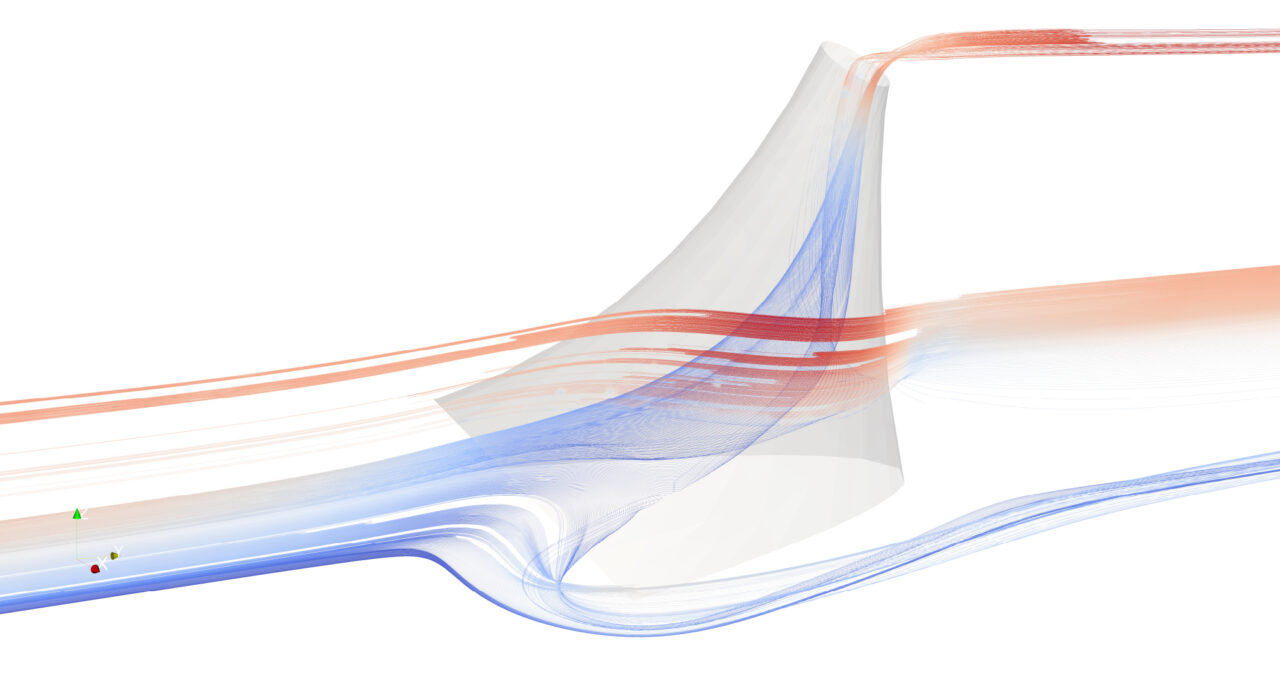
Streamline around a pavilion for generating electricity. (https://doi.org/10.1080/24751448.2022.2040308)
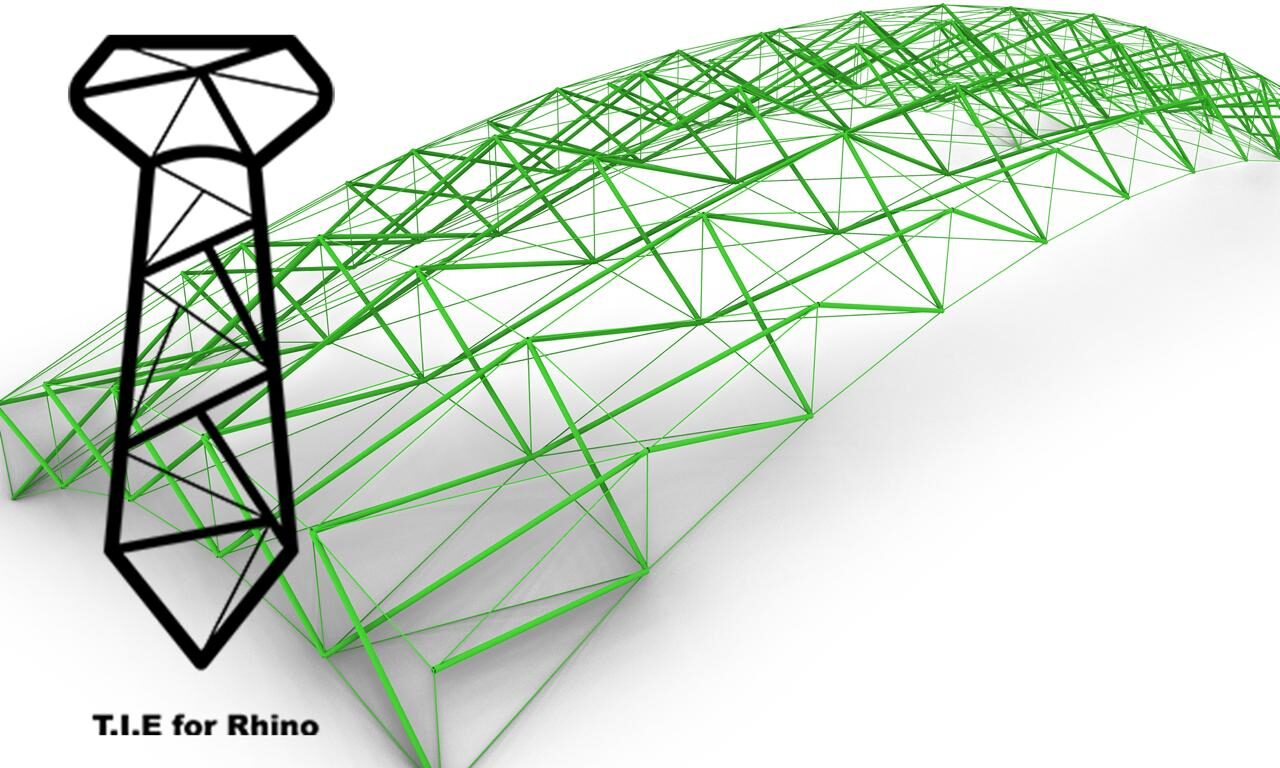
The RAL team (Professor Yun Kyu Yi and Zhanpeng Liu) developed a tool to generate a Tensegrity system for Rhino. (https://www.food4rhino.com/en/app/tie-tensegrity-integration-element-rhino)
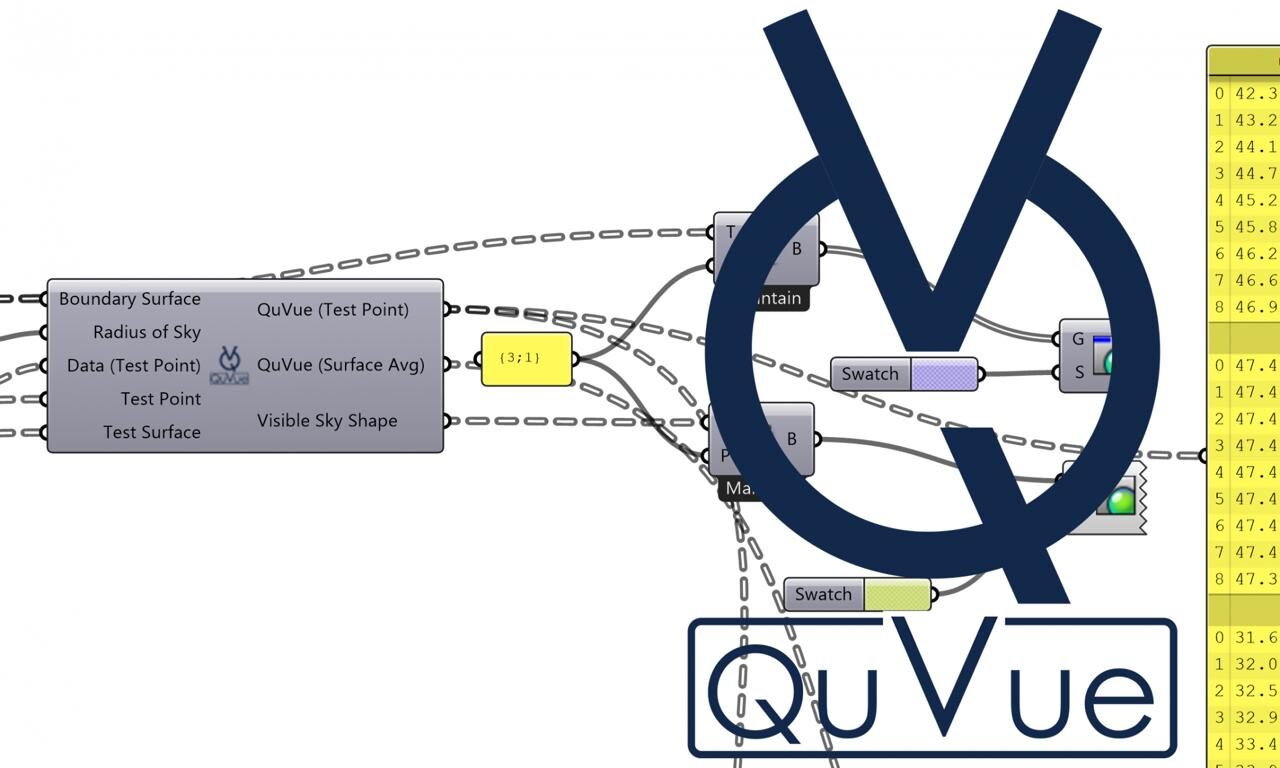
QuVue calculates the actual three-dimensional projection area of obstacles onto a virtual hemisphere, considering humans’ downward view.
Education
- Ph.D., Architecture, School of Design, University of Pennsylvania. Dissertation: Integration of Computational Fluid Dynamics (CFD) and Energy Simulation (ES) for Optimal Energy Form Generation (2008)
- Master of Science, Architecture, School of Design, University of Pennsylvania (2005)
- Master of Science, Architectural Engineering, Department of Architectural Engineering, Yonsei University, South Korea (2001)
- Bachelor of Science, Architectural Engineering, Department of Architectural Engineering, Hong-Ik University, South Korea (1995)
Research and publications
Selected publications
2024 Kim, You-Jeong, Anis, Manal, and Yi, Yun Kyu, “Integrating Pix2Pix and computational fluid dynamics for enhanced indoor airflow prediction: A case study with wing-walls”, Journal of Building Engineering, Volume 91, 2024, https://doi.org/10.1016/j.jobe.2024.109517
2024 Kim, YJ., Waegel, A., Hakkarainen, M, Yi, YK, Braham, W. “Understanding HVAC system runtime of U.S. homes: An energy signature analysis using smart thermostat data”, Build. Simul. (2024). https://doi.org/10.1007/s12273-024-1203-9
2023 Wang, Shanshan, Yun Kyu Yi, and Nianxiong Liu. 2023. "The ANN Architecture Analysis: A Case Study on Daylight, Visual, and Outdoor Thermal Metrics of Residential Buildings in China" Buildings 13, no. 11: 2795. https://doi.org/10.3390/buildings13112795
2023 Yi, Yun K., et.al., " Application of Machine Learning (ML) and Genetic Algorithm (GA) to optimize Window Wing Wall Design for Natural Ventilation," Journal of Building Engineering, Volume 68, 1 June 2023, 106218, https://doi.org/10.1016/j.jobe.2023.106218
2023 Li, Yaxin, and Yi, Yun K., "Optimal Shape Design using Machine Learning for Wind Energy and Pressure," Journal of Building Engineering, Volume 70, 1 July 2023, 106337, https://doi.org/10.1016/j.jobe.2023.106337
Teaching and advising
Classes taught
ARCH 573: Performance + Computation (AI Studio) Technology & Performance
- This studio is a research studio that seeks to speculate on the future use of AI as design generators and what the role of architects could be.
ARCH 594: High Performance Building Design
- This course is a graduate-level elective under the Technology and Performance category. Students learn to use computational tools at an advanced level and apply them to analyze an existing campus building. Based on the analytical results, students develop sustainable design strategies. The outcomes of their work support the university’s Facilities & Services (F&S) in improving the performance of campus buildings.
Students advised
Bo Wang, Visiting Ph.D. student, Harbin Institute of Technology, Harbin, China, 2019-20.
Changyu Qiu, Visiting Ph.D. student, Department of Building Services Engineering, The Hong Kong Polytechnic University, Hong Kong, China, 2019.
Current Ph.D. advisees
(^Denotes service as Chair or co-Chair of Committee; IP = In progress)
^Myeongwon Chae, “LLM for Building Energy Modeling,” University of Illinois at Urbana-Champaign, IP.
^Saba Imani, “Human behavior and Building Energy Use ,” University of Illinois at Urbana-Champaign, IP.
^You-Jeong Kim, “Integrating Physics and Machine Learning to Enhance Uncertainty Quantification in Building Energy Evaluation,” University of Illinois at Urbana-Champaign, IP.
^Manal Anis, “The Receptive Screen: Developing an adaptive shading system and evaluating its performance through advanced daylight modeling,” University of Illinois at Urbana-Champaign, IP.
^Keunhyuk Jang, “Dynamic coupling of CFD and Whole building energy simulation,” University of Illinois at Urbana-Champaign, IP.
Past Ph.D. advisees
Jaewook Lee, “Integration of Daylight and Building Design for Human Health and Wellbeing," University of Illinois at Urbana-Champaign, 2020.
Nastaran Shishegar, “The Promise of Lighting for Improving the Quality of Life in Older Adults: Evaluating the Impacts of Tuning Ambient Illumination on Older Adults’ Sleep Quality, Mood, and Cognitive Performance," University of Illinois at Urbana-Champaign, 2020.
Grant Mosey, “Quantifying Design Trade-offs in Sustainable Urban-Scale Design Through Multivariate Optimization,” University of Illinois at Urbana-Champaign, 2020.
Pengyuan Shen, “Whole building retrofit life cycle optimization method integrated with impacts of climate change and its uncertainties,” University of Pennsylvania, 2017. Now Assistant Professor at School of Architecture, Harbin Institute of Technology, Shenzhen, China, 2017.
Visiting Ph.D. advisees
Shanshan Wang, Visiting Ph.D. student, School of Architecture, Tsinghua University, Beijing, China, 2019-.
Bo Wang, Visiting Ph.D. student, Harbin Institute of Technology, Harbin, China, 2019-20.
Changyu Qiu, Visiting Ph.D. student, Department of Building Services Engineering, The Hong Kong Polytechnic University, Hong Kong, China, 2019.
